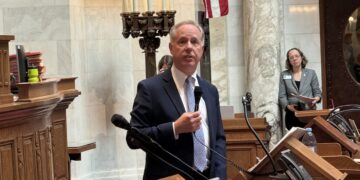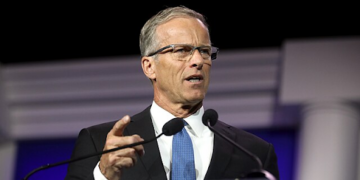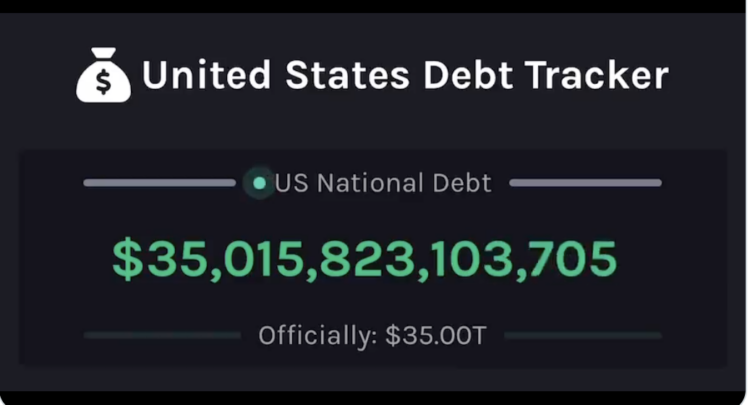The U.S. federal debt has reached an unprecedented $35 trillion, highlighting the nation’s escalating fiscal challenges. This massive debt increase reflects a rapid acceleration in borrowing, with the United States adding approximately $12 trillion since 2020. To put this in perspective, it took nearly 200 years for the country to accumulate its first trillion in debt, a figure now matched roughly every 100 days.
Since January 2020 (Beginning of COVID era), the United States has been adding an average of approximately $280 billion in federal debt every month, leading to a staggering $105,000 in federal debt for every person in the country. The situation has become so dire that the annual cost of servicing this debt has reached $1.1 trillion, a figure that surpasses the entire federal budget for defense. Most of this interest payment is directed to foreign creditors, such as China, as well as commercial banks and Wall Street bond funds. As a result, a significant portion of American income taxes now goes towards paying these interest obligations, rather than funding essential domestic programs and services.
Federal Reserve Chairman Jerome Powell, in a recent interview on “60 Minutes,” acknowledged the severity of the situation, stating, “The US federal government is on an unsustainable fiscal path, and that just means that the debt is growing faster than the economy.” This unsustainable path is underscored by the staggering interest payments on the national debt, which have now surpassed almost all other spending categories. As of fiscal year 2024, about 14% of federal spending is dedicated to servicing debt obligations, exceeding expenditures on national defense, Medicare, and other healthcare programs, which each constitute 13% of the budget. Only Social Security, accounting for 22% of federal spending, surpasses these interest payments.
The issue of Social Security reform remains highly contentious in American politics, with both major parties wary of discussing potential changes due to the risk of alienating older voters. Vice President Kamala Harris, the likely Democratic nominee, has historically supported legislation aimed at expanding benefits, adjusting the calculation for cost-of-living increases, and requiring higher contributions from wealthy taxpayers. In contrast, former President Donald Trump, the Republican nominee, recently emphasized his commitment to protecting Social Security and Medicare, stating he would “never do anything that will jeopardize or hurt” these programs.
EJ Antoni, a research fellow at the Heritage Foundation, recently highlighted the severity of the debt crisis, noting that “not only is the nation drowning in debt, but now the interest payments are an anchor around its neck.” He further emphasized that the federal government is already facing $2 trillion annual deficits, exacerbating the situation. Antoni warned that “the time bomb of federal finance has already started ticking down,” urging immediate attention to the growing fiscal challenges.
































